The Corsair iCUE LINK TITAN 360 RX RGB AIO Cooler Review: Meticulous, But Pricey
by E. Fylladitakis on August 29, 2024 1:00 PM EST- Posted in
- Cases/Cooling/PSUs
- Corsair
- Water Cooling
- Liquid Cooling
- iCUE
- ARGB
Testing Results, Maximum Fan Speed
Our maximum speed testing is performed with both the fans and the pump of the kit powered via a 12V DC source. This input voltage should have the pump and fans matching the speed ratings of the manufacturer. According to Corsair’s specifications, the RX120 fans included with the iCUE LINK TITAN RX 360 RGB should have a rotational speed of 2100 RPM. Our tachometer indicated that the fans were rotating at an average speed of 2170 RPM, a very rare case of the fans actually having a higher speed than the manufacturer’s rating.
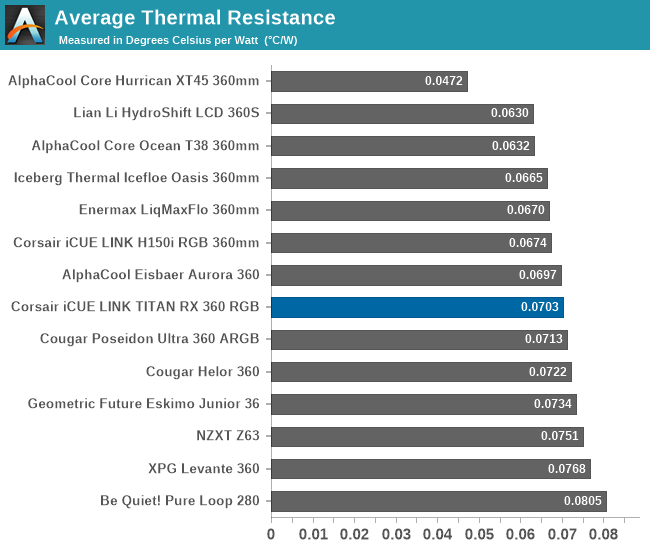
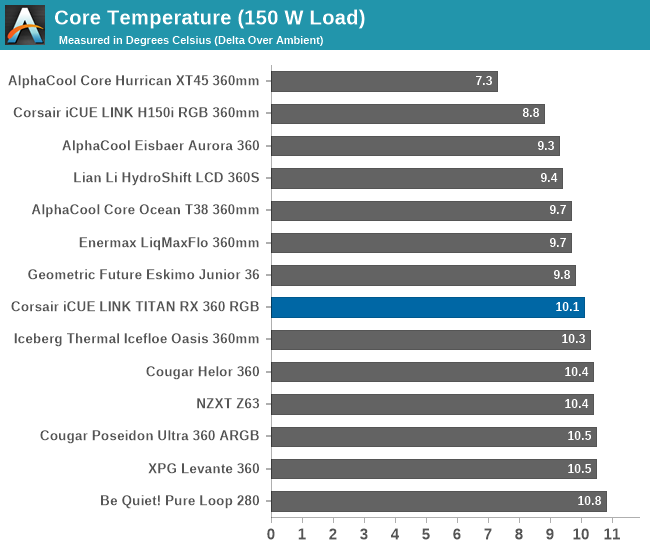
| Core Temperature, Constant Thermal Load (Max Fan Speed) |
The Corsair iCUE LINK TITAN RX 360 RGB AIO Liquid Cooler offers performance similar to the H150i, with a slight trade-off between thermal performance and acoustics. At high-speed settings, the TITAN RX 360 RGB has an Average Thermal Resistance of 0.0703 °C/W, which, although slightly higher than the H150i, still delivers robust cooling and easily competes against other similarly-sized products.
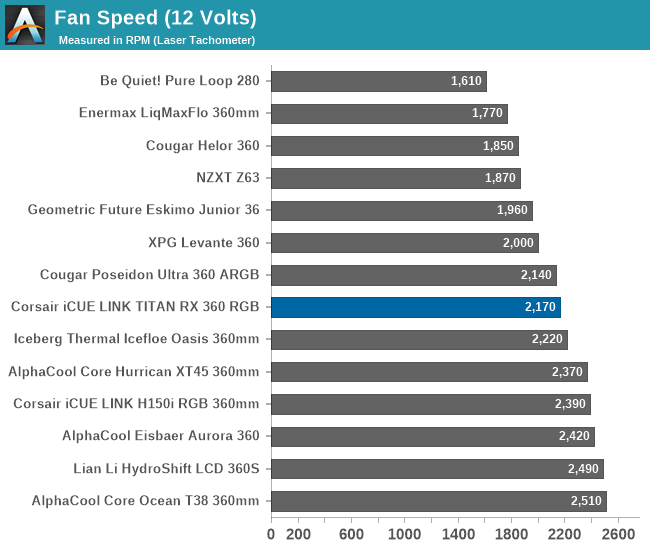
Markedly, the TITAN RX 360 RGB operates at a sound pressure level (SPL) of 42 dB(A) at maximum fan speed, providing a quieter experience compared to the H150i. Although the TITAN RX 360 RGB seemed that it could not match the H150i in thermal performance, it compensates with significantly improved acoustics.
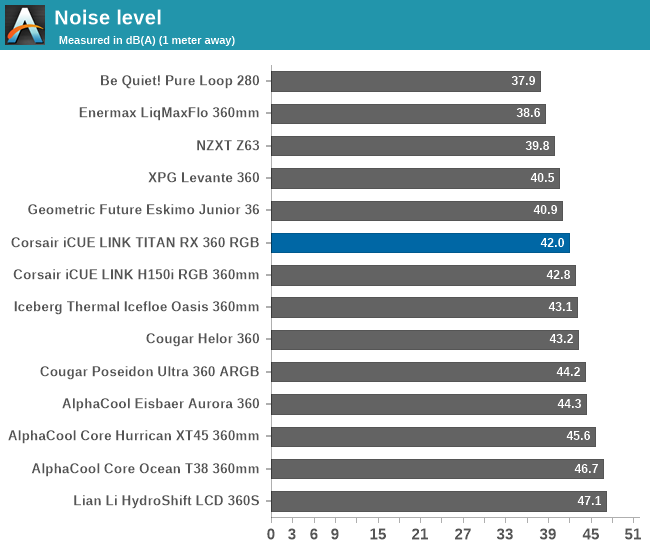
Testing Results, Low Fan Speed
Using a PWM voltage regulator, we reduced the speed of the fans manually down to half their rated speed. At this setting, the 120 mm RX120 fans of the Corsair iCUE LINK TITAN RX 360 RGB rotate at 1050 RPM.
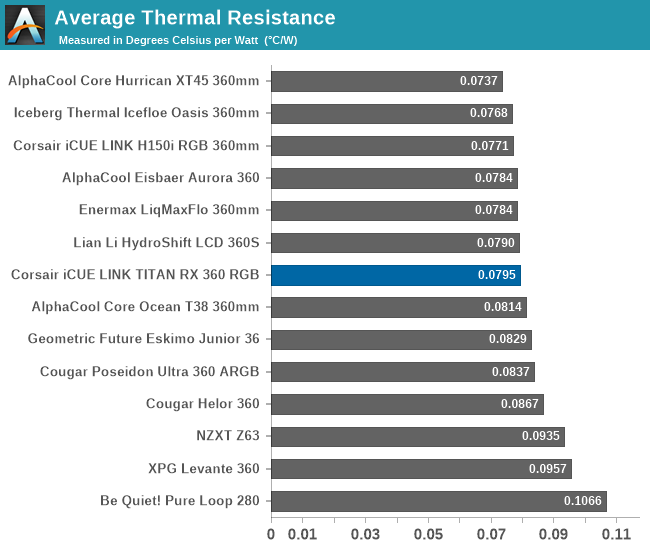
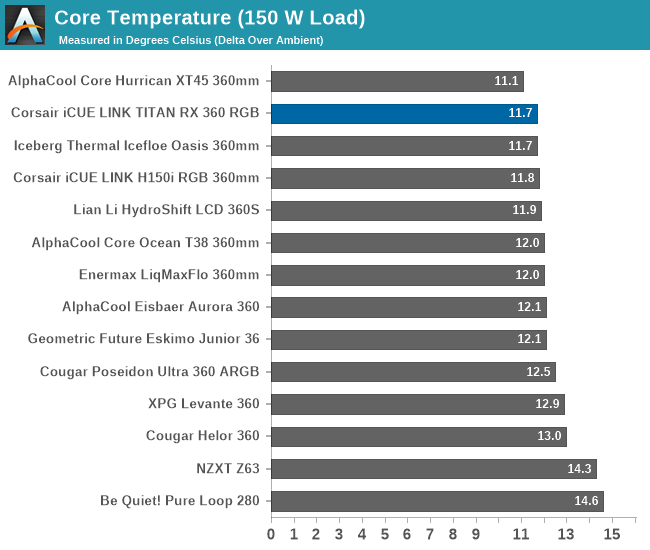
| Core Temperature, Constant Thermal Load (Low Fan Speed) |
With its fans running at half speed, Corsair iCUE LINK TITAN RX 360 RGB AIO Liquid Cooler delivers performance on par with the iCUE LINK H150i, with similar thermal efficiency but better acoustics. It achieves an Average Thermal Resistance of 0.0795 °C/W, which positions it as one of the strongest contenders among 360 mm coolers.
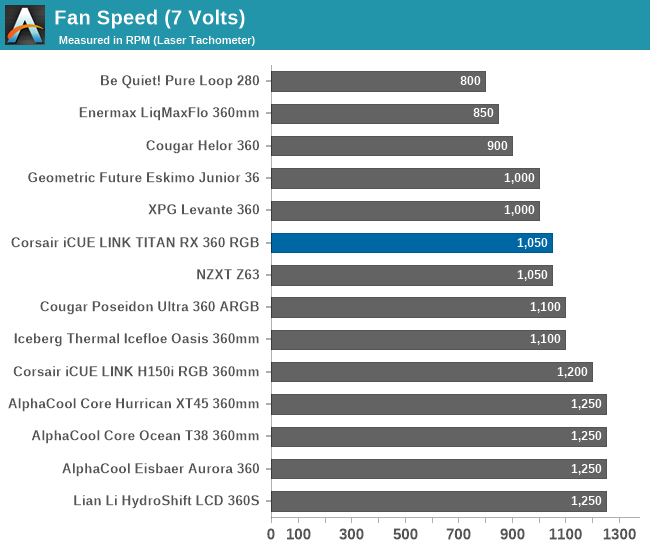
Unlike many coolers that sacrifice noise levels for thermal performance, the TITAN RX 360 RGB manages to maintain this efficiency with a Sound Pressure Level (SPL) of just 34.3 dB(A). This noise level is extremely low for an AIO cooler with three fans and also offers a significantly quieter operation than the older iCUE LINK H150i.
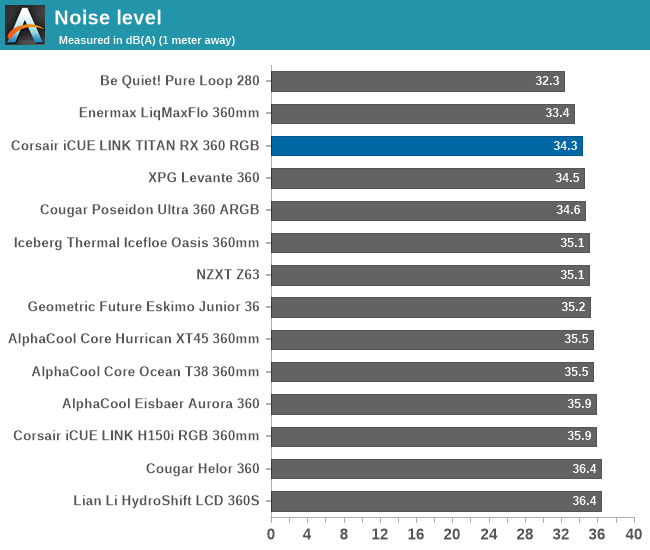
Thermal Resistance VS Sound Pressure Level
During our thermal resistance vs. sound pressure level test, we maintain a steady 100W thermal load and assess the overall performance of the coolers by taking multiple temperature and sound pressure level readings within the operating range of the stock cooling fans. The result is a graph that depicts the absolute thermal resistance of the cooler in comparison to the noise generated. For both the sound pressure level and absolute thermal resistance readings, lower figures are better.
The chart reveals that the Corsair iCUE LINK TITAN RX 360 RGB offers a modest improvement over the iCUE LINK H150i RGB, with the performance line shifted slightly to the left. This indicates that the TITAN RX 360 RGB can achieve the same thermal performance at slightly lower noise levels than its predecessor. While the H150i RGB relies on fast 2400 RPM fans for peak efficiency, the TITAN RX 360 RGB delivers comparable cooling with less noise, subtly enhancing the performance curve. The data further emphasizes that the benefits of a long, thin 360 mm radiator, as seen in both models, are largely realized without requiring extremely high airflow, thanks to its extensive heat transfer surface.


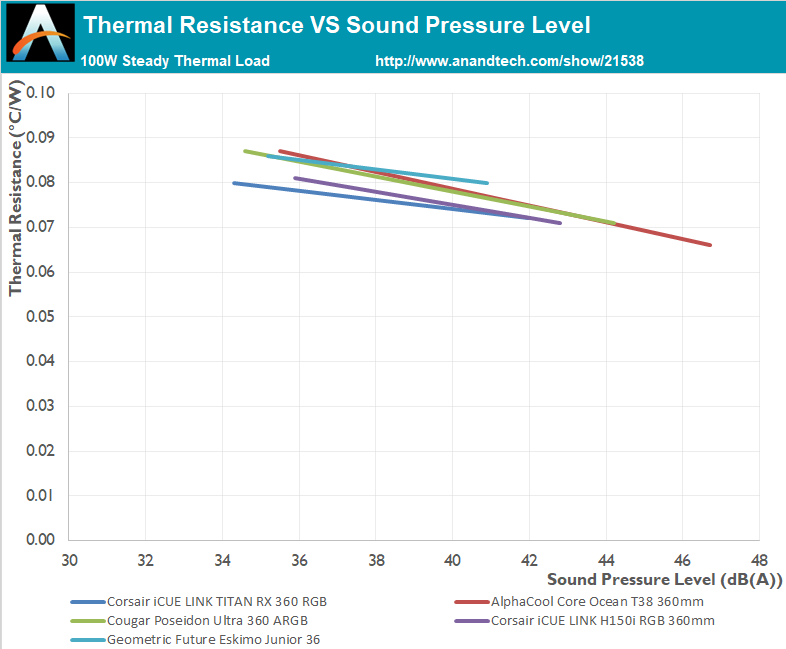








2 Comments
View All Comments
ballsystemlord - Thursday, August 29, 2024 - link
Wow! Three 360mm cooler reviews in a matter of days, keep up the amazing work!hansmuff - Friday, August 30, 2024 - link
I have some Corsair AIOs myself. What I appreciate most is a very good, painless RMA process. AIOs are good for 5-7 years at best, at least the current ones. Replacing a 3yo AIO that started to fail was a totally painless process. Corsair is not cheap; as long as the RMA quality reflects that, I personally recommend them.